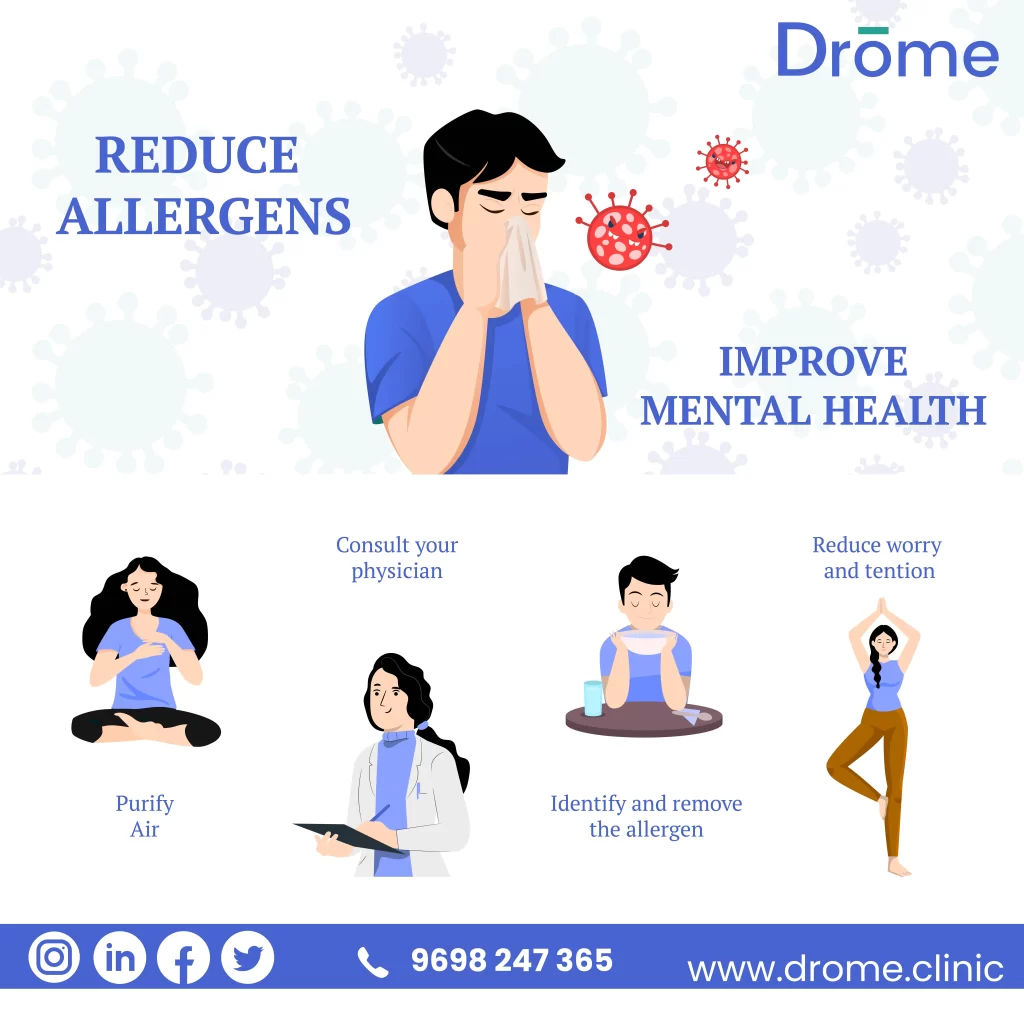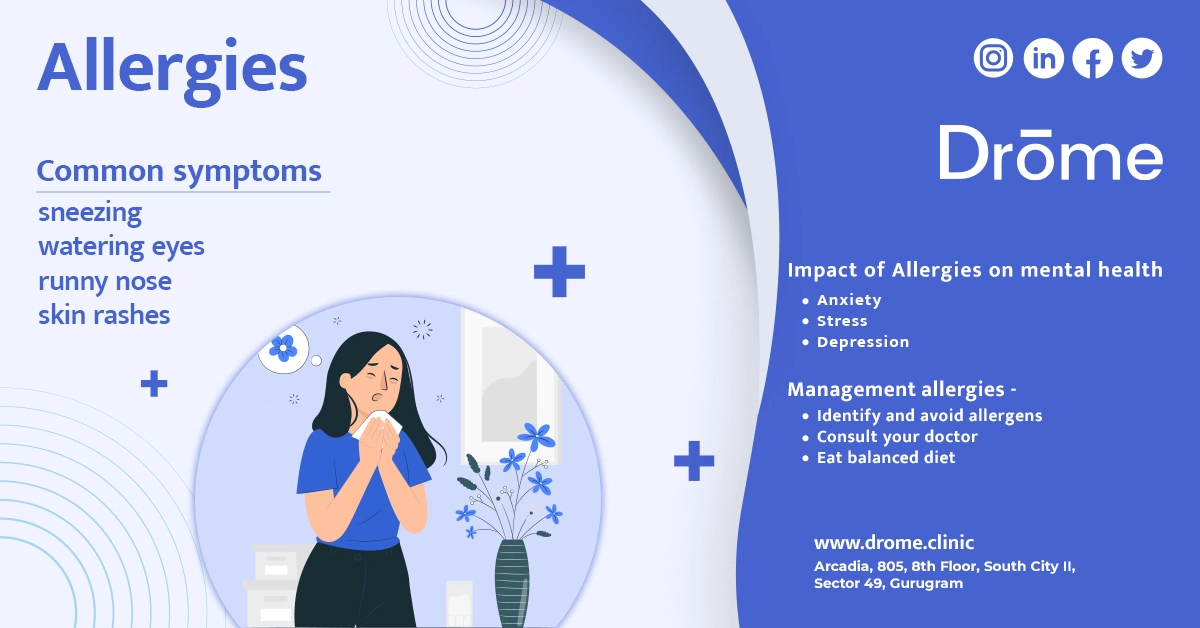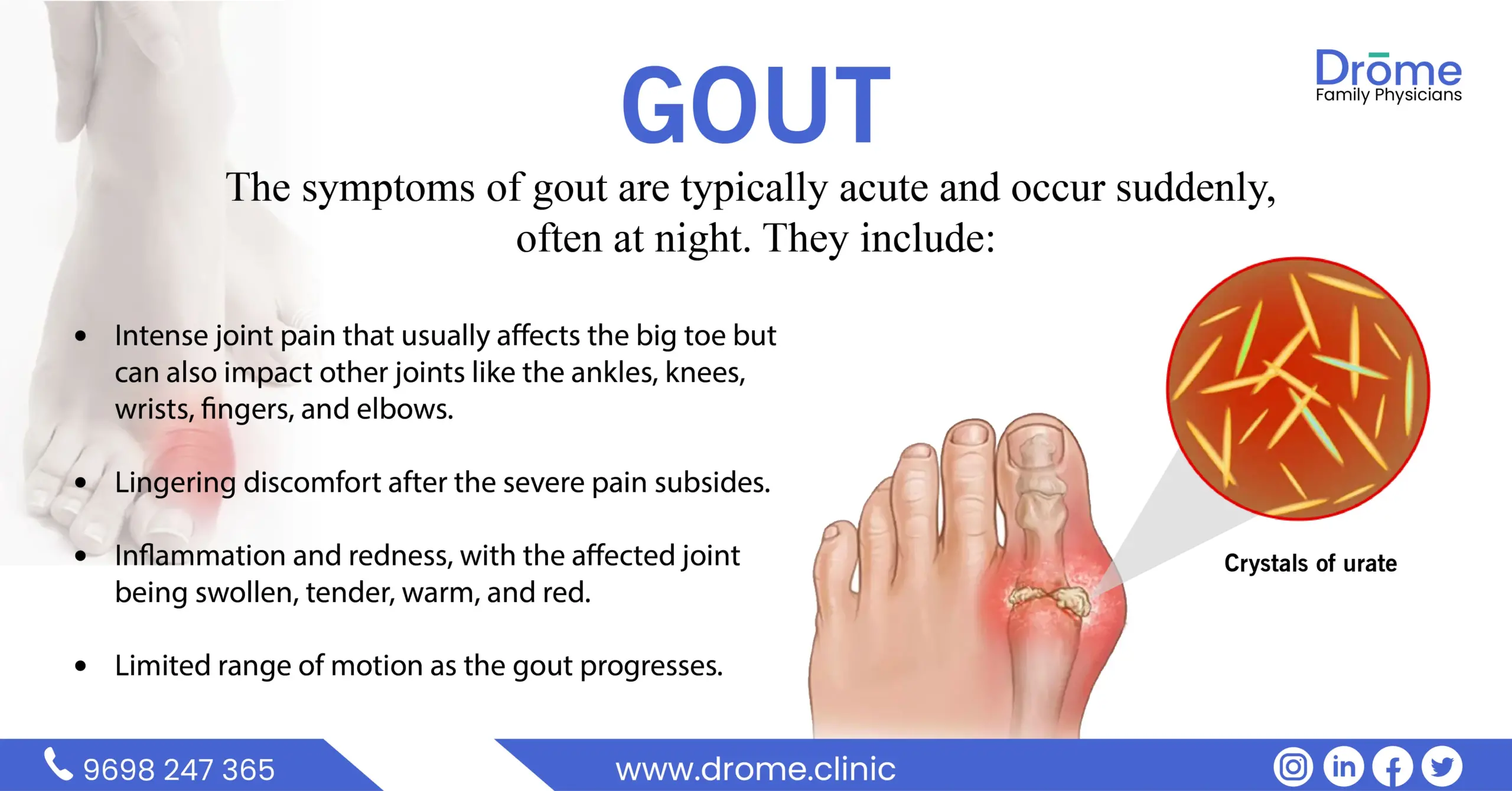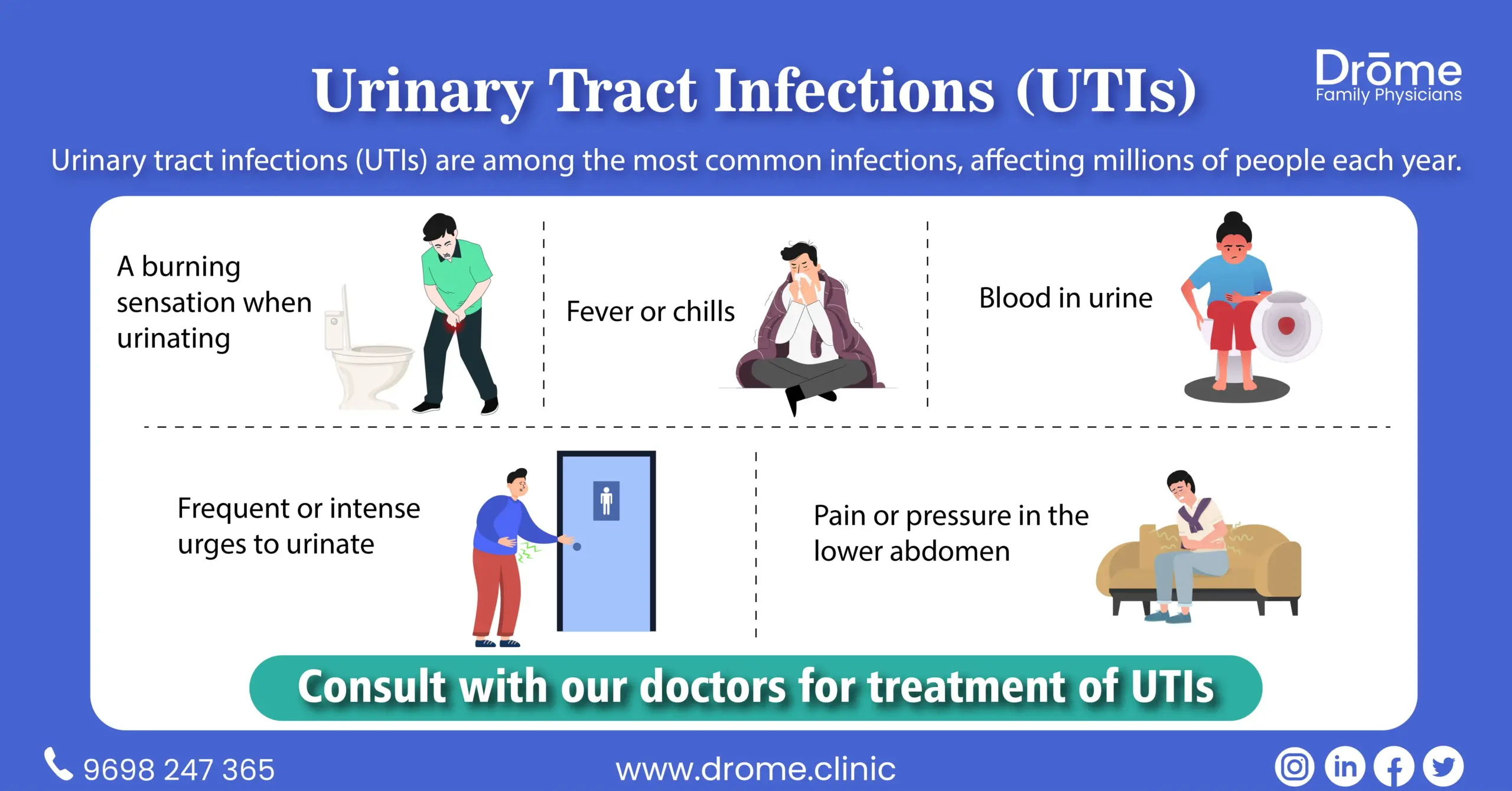Table of Contents
ToggleThe Impact of Allergies on Quality of Life and Mental Health
Allergies affect an individual’s physical and mental health and quality of life. In this blog post we will understand the effects of allergies on mental health and the importance of holistic care.
Allergies
- An allergy is hyperactivity of immune system to foreign substances.
- Allergens, the substances that cause allergies can be found in food, drinks or the environment.
- The most common environmental allergens include dust mites, pet dander, pollen, mold and insects.
The Allergy Burden: Quality of Life
- Allergies can significantly affect the quality of life for many people.They may cause sleep disturbance due to symptoms like coughing, sneezing and runny nose, resulting in fatigue and reduced daily function.
- Severe environmental allergies might limit outdoor activities.
- Food allergies can make dining out difficult,affecting the social life.
- The persistent discomfort and necessary lifestyle modifications can lead to feelings of frustration and isolation.
Allergies and Mental Health: The Unseen Connection
The impact of allergies on mental health is less visible.The continuous stress and anxiety about potential allergy attacks can be a significant mental burden.
1. Anxiety and Stress: The fear of a potential allergic reaction can increase stress and anxiety levels. This is particularly true for people with severe allergies where exposure to allergens can lead to life-threatening anaphylaxis.
2. Depression: The chronic nature of allergies, the impact on quality of life and the feeling of being different or the fear of being excluded can contribute to the development of depression in individuals with allergies.
3. Cognitive Impairment: Chronic sleep disruption caused by allergies can lead to fatigue which can affect cognitive function, impair school or work performance and result in a lower overall quality of life.
Addressing the Issue: A Holistic Approach
Recognizing and addressing the mental health impact of allergies is crucial in managing the condition effectively. Here are some ways to approach this:
1. Consultation and Therapy: If an individual feels overwhelmed by their allergies, it can be beneficial to speak to a psychologist or counsellor..
2. Support Groups: Connecting with others who are facing the same challenges can provide emotional support.
3. Regular Sleep Routine: Maintaining a regular sleep routine can help combat fatigue and improve mental wellbeing.
4. Regular Exercise: Physical activity can boost your mood, help you maintain a healthy weight and promote better sleep.
5. Balanced Diet: A balanced diet can improve your overall health and energy levels.

Conclusion: Allergies and Beyond
Living with allergies is more than managing physical symptoms. The impact on mental health can be profound and far-reaching, affecting quality of life, social interactions and overall wellbeing. We should have a holistic approach to allergies, taking proactive steps to manage both the physical and mental symptoms of allergies.
For more blogs visit: https://drome.clinic/blog/







